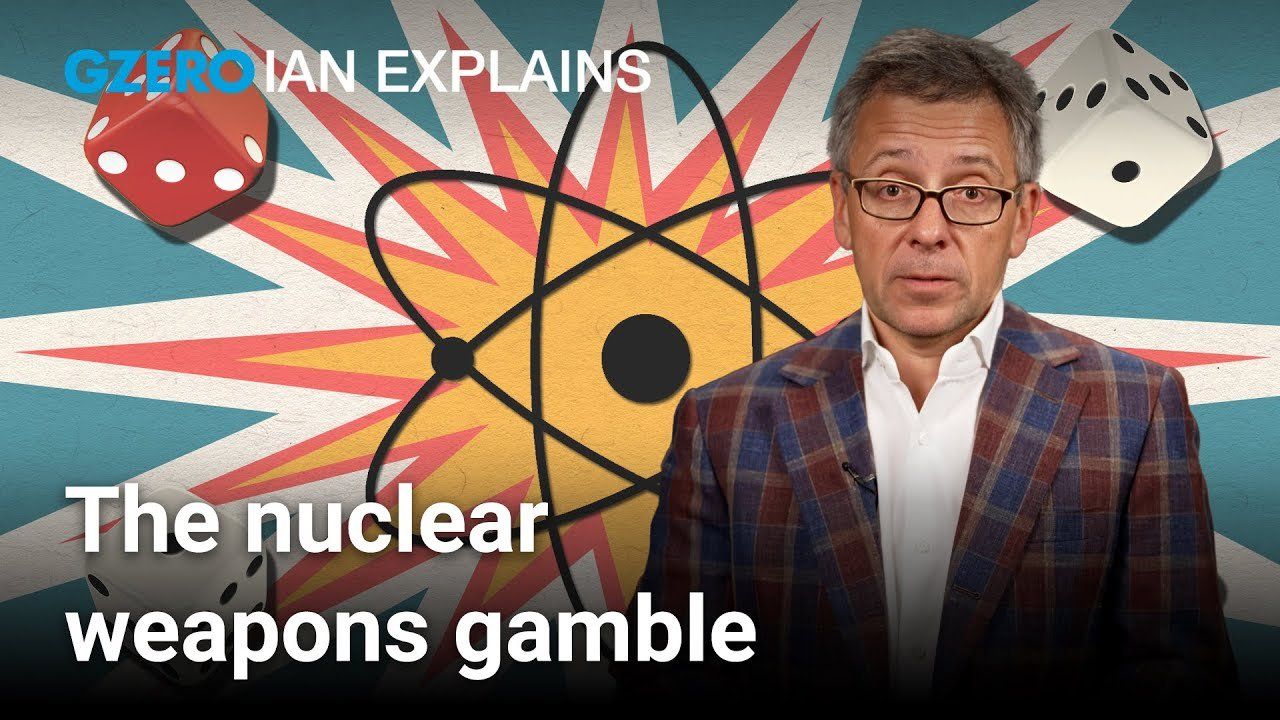July 11, 2025
Does acquiring nuclear weapons make your country safer? It’s a difficult question. On Ian Explains, Ian Bremmer looks back to the 1990s and a tale of two radically different nuclear—Ukraine and North Korea.
Ukraine inherited the world’s third-largest nuclear arsenal after the Soviet collapse. They gave them up in 1994 in exchange for security assurances from the US, UK and Russia. But assurances aren't guarantees, and a decade later, Russia illegally annexed Crimea before launching its full-scale invasion in 2022. Meanwhile, North Korea abandoned diplomacy, pursued nuclear weapons, and lied to the world all along. Now it’s a global pariah, but the uncomfortable truth is nobody’s thinking of invading North Korea. So did Kyiv get played? Did Pyongyang make a smarter move? The contrast between Ukraine’s vulnerability and North Korea’s impunity seems stark. But the story is more complicated. Building nuclear weapons is a gamble, not a strategy. Watch Ian Explains to understand why and what it means for the growing nuclear threat in 2025.
GZERO World with Ian Bremmer, the award-winning weekly global affairs series, airs nationwide on US public television stations (check local listings).
New digital episodes of GZERO World are released every Monday on YouTube. Don't miss an episode: subscribe to GZERO's YouTube channel and turn on notifications (🔔).
More For You
At the Munich Security Conference, a group of global technology providers, including Microsoft, announced the Trusted Tech Alliance — committed to shared, verifiable principles for trusted, transparent, and resilient technology across borders. At a moment of economic volatility and zero-sum technological competition, countries and customers are demanding greater accountability from technology providers. The Alliance addresses this by bringing together companies from across Africa, Asia, Europe, and North America around shared commitments: transparent governance, secure development practices, supply chain oversight, open digital ecosystem, and respect for the rule of law—ensuring the benefits of emerging technologies strengthen public trust while driving job creation and economic growth. Learn about the Trusted Tech Alliance here.
Most Popular
- YouTube
Europe looks increasingly prepared to defend itself without America. Ian Bremmer and Ivo Daalder assess what that means for NATO, Ukraine, and the future of the West.
Ian Bremmer sits down with former US Ambassador to NATO Ivo Daalder to unpack a historic shift in the transatlantic alliance: Europe is preparing to defend itself without its American safety net.
- YouTube
Europe can no longer rely on the US and must step up to defend its own future, Ian Bremmer reports from the Munich Security Conference.
© 2025 GZERO Media. All Rights Reserved | A Eurasia Group media company.
